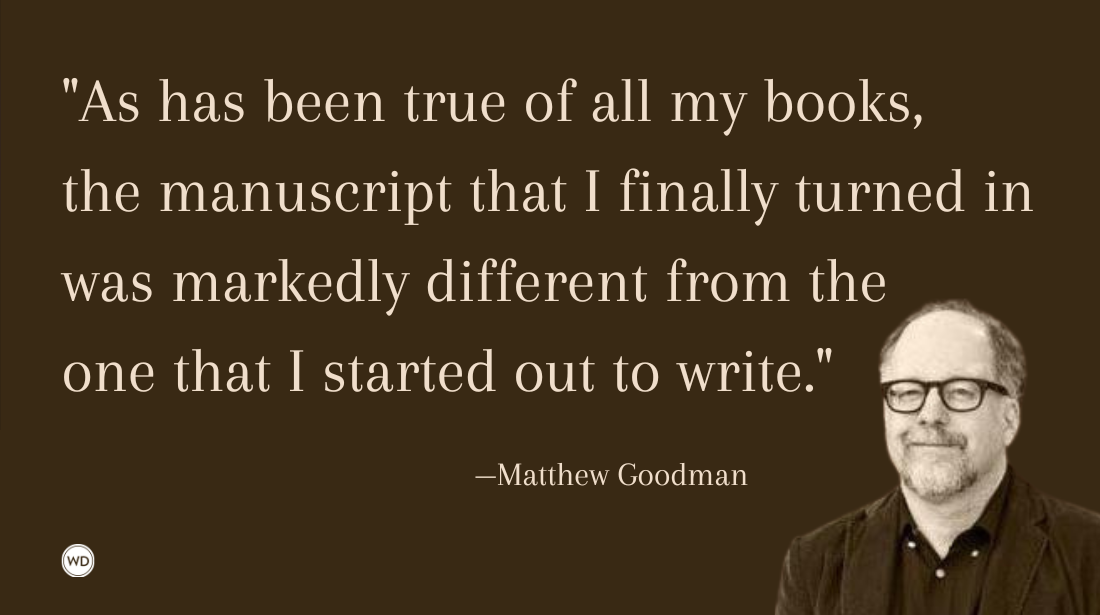Anybody vs. Anyone vs. Somebody vs. Someone (Grammar Rules)
Learn when to use anyone vs. anybody vs. someone vs. somebody with Grammar Rules from the Writer’s Digest editors, including examples of each.
Okay, so the "dek" for this post says "learn when to use anyone vs. anybody vs. someone vs. somebody," and I just want to make it clear that I'm referring to words here and not actual people. Use words, not people.
Anyway, this one is a little tricky, because all four words kind of mean the same thing, but they kind of don't work in the same situations. No joke, my copy of Merriam Webster's Collegiate Dictionary has the following definitions:
- anybody pronoun any person: ANYONE
- anyone pronoun any person at all
- somebody pronoun one or some person of unspecified or indefinite identity
- someone pronoun some person: SOMEBODY
If this seems like a slippery, cyclical slope of something, then well, yeah; that's what I thought too. So, let's figure out the differences between anyone, anybody, someone, and somebody.
Anyone vs. Anybody vs. Someone vs. Somebody
Anyone is a pronoun that means "any person." So if you would like help from a person and you don't care who that person is, then you would like help from anyone. In this sense, that anyone is not important, because anyone will do. However, anyone can sometimes be important, as in the phrase "Anyone who's anyone (fill-in-the-blank with something important people would care about or do)." For instance, anyone who's anyone loves reading grammar rules; we're the cool kids.
Anybody is a pronoun that is interchangeable with anyone. Some sources try to claim one is more formal than the other, but honestly, I think it's just a matter of whether you prefer three or four syllables in your "any person" pronoun. But maybe that's just my poetry showing. Maybe anybody who's anybody has a preference between anyone and anybody.
Somebody is a pronoun that means "some person." When comparing it with "any person," "some person" sounds a little more specific, and it often is. However, don't get too carried away with that specificity, because somebody is still some person "of unspecified or indefinite identity," which doesn't sound specific at all. But at the same time, "a somebody" is a person of importance or great social standing. Confused yet?
Well, someone is a pronoun that is interchangeable with somebody. So it's just as specific and unspecific, just as important and unimportant. Truthfully, these four pronouns are often interchangeable, though there are a few times when you should go with your choice of "some person" over your choice of "any person."
Here are some examples:
Correct: I'd be happy if anybody would help me do my chores.
Correct: I'd be happy if anyone would help me do my chores.
Correct: I'd be happy if somebody would help me do my chores.
Correct: I'd be happy is someone would help me do my chores.
Correct: Anybody who's anybody knows grammar rules.
Correct: Anyone who's anyone knows grammar rules.
Incorrect: Somebody who's somebody knows grammar rules.
Incorrect: Someone who's someone knows grammar rules.
Incorrect: If you go to the service center, anybody will take a look at your car.
Incorrect: If you go to the service center, anyone will take a look at your car.
Correct: If you go to the service center, somebody will take a look at your car.
Correct: If you go to the service center, someone will take a look at your car.
It's wild I know, but there are times when someone can be anyone, and anybody can be somebody. But there are also times when anyone can try to be a somebody, but not just anybody can be a someone.
*****
No matter what type of writing you do, mastering the fundamentals of grammar and mechanics is an important first step to having a successful writing career.
Robert Lee Brewer is Senior Editor of Writer's Digest, which includes managing the content on WritersDigest.com and programming virtual conferences. He's the author of 40 Plot Twist Prompts for Writers: Writing Ideas for Bending Stories in New Directions, The Complete Guide of Poetic Forms: 100+ Poetic Form Definitions and Examples for Poets, Poem-a-Day: 365 Poetry Writing Prompts for a Year of Poeming, and more. Also, he's the editor of Writer's Market, Poet's Market, and Guide to Literary Agents. Follow him on Twitter @robertleebrewer.








